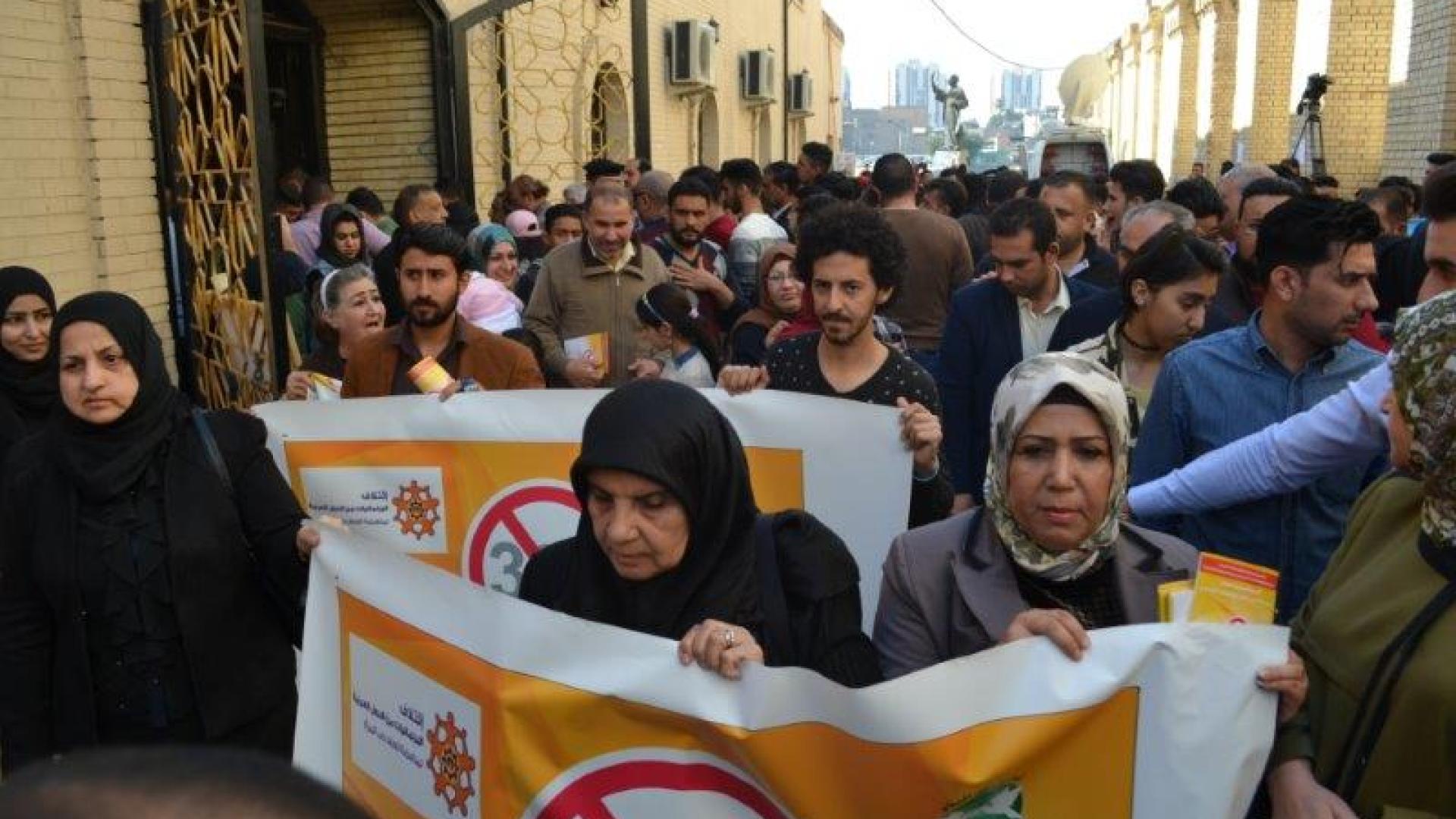Helping to end violence against women and girls in the Middle East
change in their own countries. WFD worked with lawmakers in Lebanon, Jordan, Iraq and Palestine to champion changes to
discriminatory laws that perpetuated violence against women and girls.

Iraqi law couldn’t be clearer: prosecutions against rapists can be shelved, and sentences already passed can be quashed if and when the perpetrator marries their victim. “When I was a lawyer”, Intisar El Jabbouri recalls,“the first thing the judge would ask the rapist is: do you agree to marry her? If they said yes, they would be freed”. With WFD support, Madam Intisar, now a Member of Parliament representing Nineveh province, is lobbying to change the law.
During her many years working in the courts, she had seen Article 398 of the Iraqi penal code invoked again and again. “The judge would help the rapist to get away and turn the victim into someone to be blamed” she recalls. Defenders of the status quo argue this is a question of protecting honour. But “the victim is being forced to cover up the issue and stop talking about it. And she has to marry someone she doesn’t generally want to. The penal code has many articles that perpetuate inequality or discrimination against women. Article 398 is very dangerous because it doesn’t respect the dignity and humanity of a woman, by limiting her liberty to choose who she marries.”
In November 2015, when Intisar travelled to Beirut to attend a meeting of the Coalition of Women MPs from Arab Countries to Combat Violence Against Women, she was shocked by what she heard. The meeting’s focus was on the campaign to abolish the Lebanese equivalent to Article 398. “The Coalition made me pay attention to this” Intisar remembers. “It made me realise how important it was to change it”. She quickly obtained the signatures of 66 MPs who supported her proposal to change the penal code in the Iraqi Parliament. This was presented to the Speaker, who subsequently sent it to the Legal and Justice Committee for scrutiny.
Since then, Intisar continued her valuable work to revoke Article 398 of the Penal Code with WFD support. In 2017-18, a survey, information leaflet and peaceful march were organised to raise support for the repeal of the legislation with the public. Intisar successfully joined up with local organisations campaigning for change to ensure the message reached as many people as possible. She also hosted a series of round-table meetings with parliamentarians, government representatives, advocacy organisations, religious figures, scholars and judges.
While justice for rape victims is yet to be reached in Iraq, Intisar’s vital work draws legitimation from the achievements of fellow Coalition members and women campaigners from across the region. The successful repeal of rape marriage clauses in Lebanon and Jordan in August 2017 shows how with perseverance and solidarity change can occur.